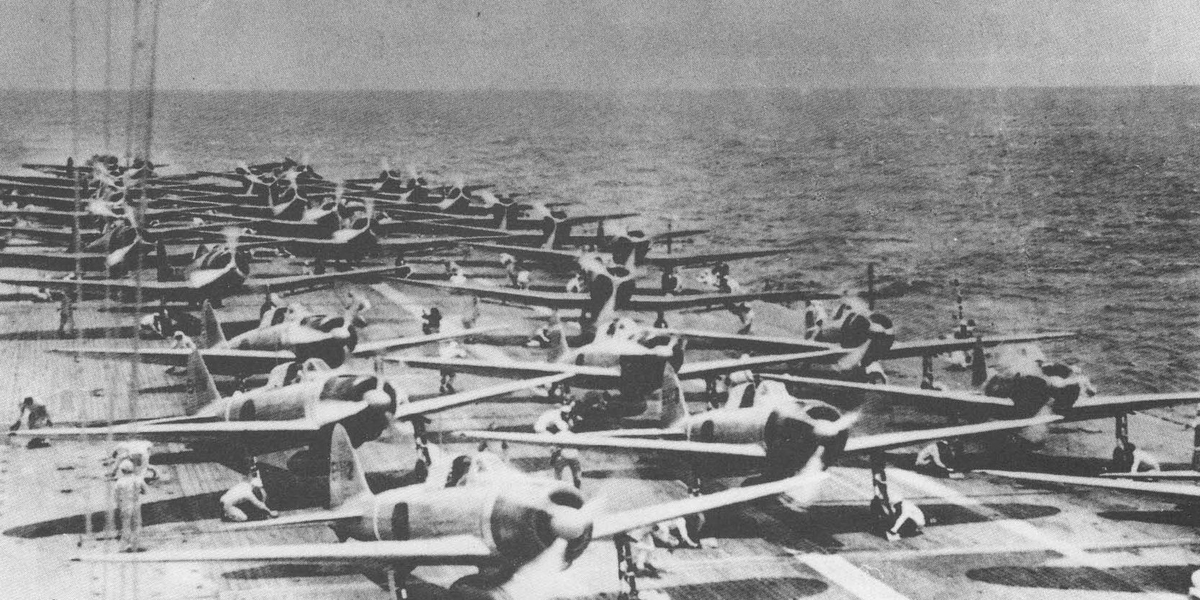And I think this is perfectly appropriate for the day after Pearl Harbor Day (Dec. 7th), because it’s a way of looking what might have been,
had it not been for the skill, bravery, and dedication of our U.S. fighting men and women.
In the actual timeline, the U.S. won an electrifying victory against Japan — sinking 4 of their aircraft carriers at the cost of 1 of ours — and thereby clawed our way back to parity. And with our greater industrial might, we had the advantage going forward. Meaning, Admiral Yamamoto did not get the quick victory he knew he needed.
But what if Japan had won the Battle of Midway?
had it not been for the skill, bravery, and dedication of our U.S. fighting men and women.
In the actual timeline, the U.S. won an electrifying victory against Japan — sinking 4 of their aircraft carriers at the cost of 1 of ours — and thereby clawed our way back to parity. And with our greater industrial might, we had the advantage going forward. Meaning, Admiral Yamamoto did not get the quick victory he knew he needed.
But what if Japan had won the Battle of Midway?
Last edited:

